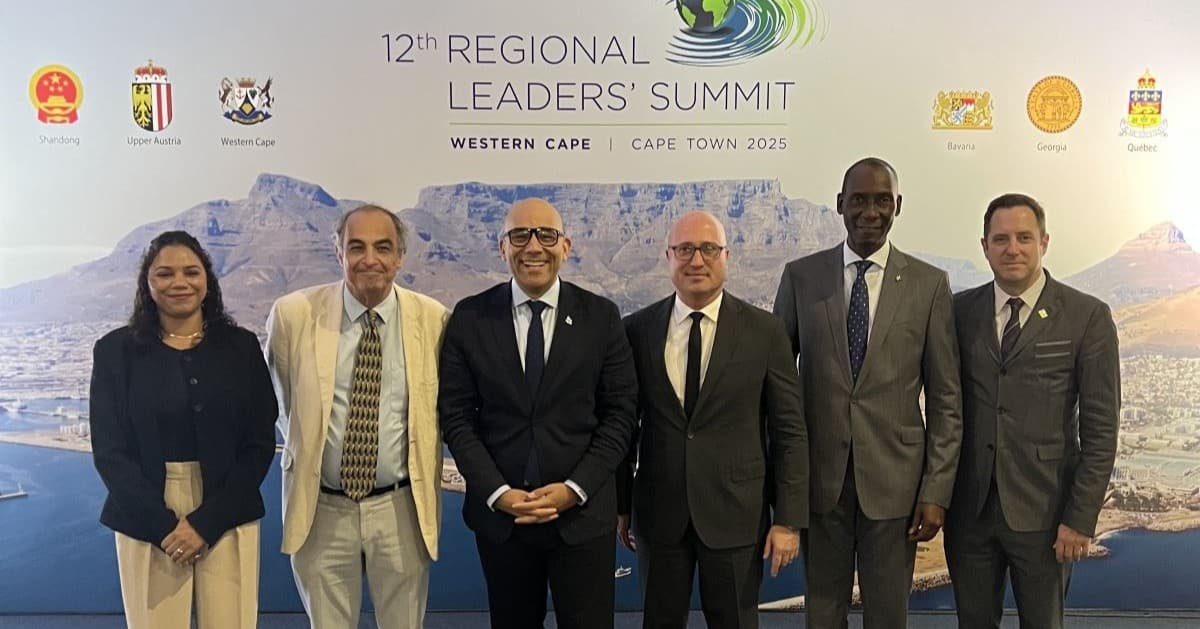- Research
-
YOU ARE
- Community member
- Future Student
- Student
- Professor
- Alumni
- Media
- Guidance counsellors
- INRS retiree
- Contact Us
- Newsroom
- Careers
- FR
-
Studies
We teach the next generation of researchers to develop scientific, social, and technological innovations.
-
Research
We find solutions through interdisciplinary research and industry or public and community partnerships.
-
INRS
We play an active role in Québec's economic, social, and cultural development.
This partnership aims to heighten the international visibility of INRS and the presence of Quebec-based scientific knowledge beyond its borders.

From left to right : Kulbir Ghuman – professeure à l’INRS, Mohamed Chaker – professeur à l’INRS, Christopher Skeete – ministre des relations internationales et de la francophonie du Québec, Philippe-Edwin Bélanger – directeur du Bureau de l’international de l’INRS, Iya Touré – délégué général du Québec à Dakar, Dominic Marcotte – sous-ministre adjoint et chef du protocole du gouvernement.
The Institut national de la recherche scientifique (INRS), the University of South Africa (UNISA) and the iThemba LABS/NRF research centre have signed an important strategic partnership agreement aimed at strengthening scientific collaborations and the mobility of students and professors between Quebec and Ssouth Africa.
This marks a major step forward in the development of international collaborations involving INRS, on both the scientific and institutional levels. The agreement will help position Quebec as a leading-edge research actor in Africa.
By signing this agreement, the three establishments have shown a shared willingness to meet large-scale scientific and societal challenges, while fostering a productive dialogue between communities from the Global North and Global South. Under the partnership agreement, they will share their expertise in the fields of nanoscience, advanced materials, energy, health, and quantum technologies.
This partnership was formalized on the occasion of a ceremony held in Cape Town, in the presence of Christopher Skeete, Quebec’s Minister of International Relations and La Francophonie, Professors Mohamed Chaker and Kulbir Kaur Ghuman, as well as Philippe-Edwin Bélanger, Director of the International Office of INRS. This university and government delegation in Cape Town attests to the importance placed on this collaboration, specifically as it concerns the dissemination of scientific knowledge and university-based diplomacy.
Highlights
The implementation of the partnership will facilitate:
- The mobility of students and researchers between Quebec and South Africa.
- The development of joint training activities and bilateral seminars.
- The completion of joint research projects in nanoscience and nanotechnologies.
- The pooling of leading-edge scientific infrastructures, notably those of iThemba LABS/NRF and the Énergie, Matériaux et Télécommunications Research Centre
Share
